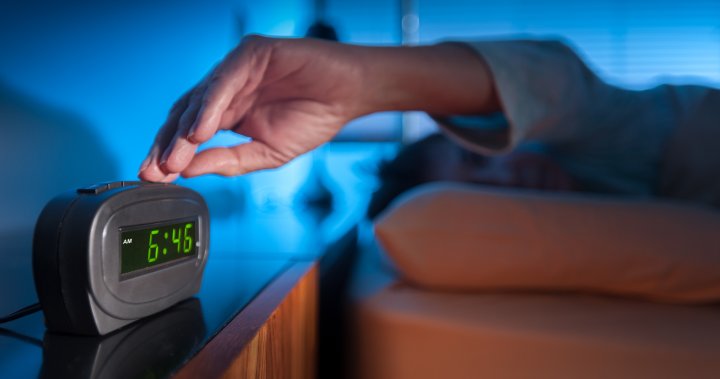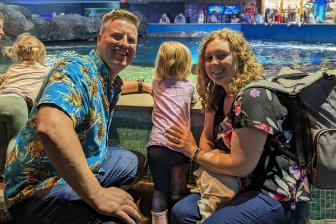March 15 is World Sleep Day, and experts are sharing ways to help you catch those zzz’s.
Dr. Diana McMillan, a sleep researcher and sleep health educator, said 20 to 30 per cent of people aren’t sleeping long enough or well enough.
She said this has a direct link to physical and mental health.
Not only does a lack of sleep make us clumsier and more prone to accidents, she said, but “it increases our blood pressure, putting us at greater risk for having a myocardial infarction–what we call a heart attack or stroke.”
It also impacts various hormones.
“Growth hormones are almost exclusively excreted during sleep,” McMillan said, adding that this hormone is important for growing as its name suggests, but also for “normal, everyday tissue repair. So, if we don’t get enough sleep, we won’t have that normal protective rehabilitation going on internally.”

Other hormones, like those that help control blood sugar, are also thrown out of whack, she said. “So our blood sugar levels tend to be higher. It can be, almost, like being a Type 2 diabetic, and that certainly predisposes us to other health things, including greater risk of infections.”
The latest health and medical news
emailed to you every Sunday.
The latest health and medical news
emailed to you every Sunday.
McMillan noted that there are studies linking teens to developing depression or mood-related disorders when they’re not sleeping well.
Channels allowing spinal fluid to rinse the brain of toxins are also opened when people sleep, McMillan said. “Those channels are pretty much closed when we’re awake.”
However, there are ways to improve your sleep, she said, including going to bed, waking up and having meals at the same time each day. Exercising will also help.
Andrew Hoskins, senior manager of Sleep West for Careica Health said, “It’s all things that we know, but we also don’t always want to do.”
“Cut out caffeine by three or four in the afternoon so you have lots of that out of the way before you’re trying to get to sleep,” he said.
“Stay off your blue screen devices of any kind for at least an hour before you go to sleep, try not to eat before you go to sleep (and) make sure you’re in a nice dark, cool room so that your body can get comfortable and get right to sleep,” he said.
McMillan said she recommends keeping a TV out of the bedroom, as well as pets, which are cute but disturb sleep.
Hoskins said an increased awareness of sleep and its importance has led a lot of people to clinics like Careica Health. A Level 1 sleeping test, which can measure every sleep disorder, can be an almost two-year wait.
The most common sleep disorder is sleep apnea, he said, but “one that is really starting to come to the forefront right now is insomnia.”
He said insomnia has taken a particular jump since the pandemic.
Insomnia is when someone can’t fall asleep, or they wake up in the middle of the night and can’t fall back asleep.
Other sleeping disorders include sleepwalking, sleep eating and night terrors, Hoskins said.
“They are things that are affecting your sleep. You’re not sleeping like you should, which is to lie down and actually go through the four different stages of sleep and get that rejuvenation,” he said.
There’s a few red flags to pay attention to.
“If your spouse is having to give you one of those elbows, that probably means you need a test. But daytime fatigue (and) morning headaches are actually another really big one,” Hoskins said.
He noted headaches in women in particular “are a really big indicator that there could be something going on with your sleep.”
At a clinic, there are various treatment options, he said, including devices that make sure you’re breathing well, and cognitive behavioral therapy for insomnia.
That therapy can be available by phone, one-on-one session, or group session, he said.

© 2024 Global News, a division of Corus Entertainment Inc.




